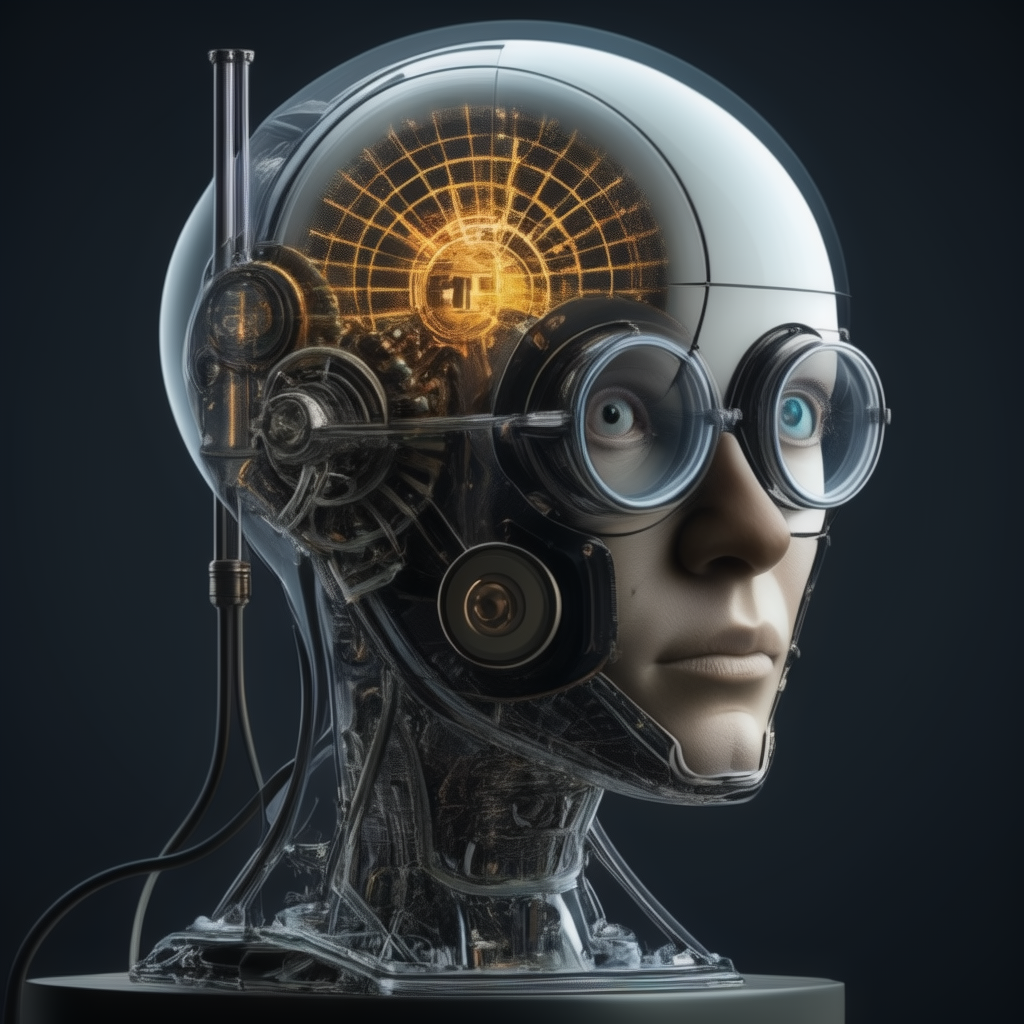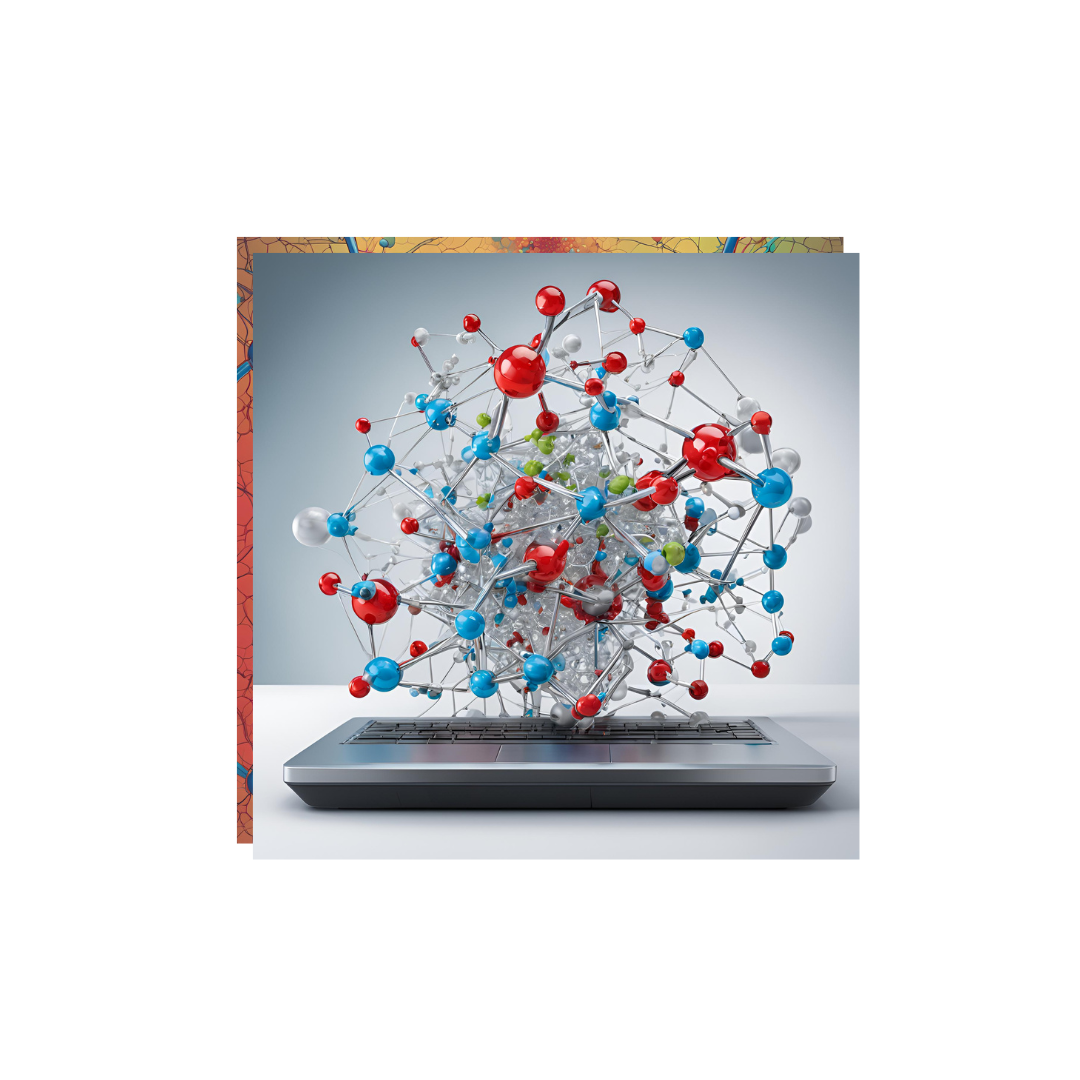Mastering the Art of 100% Precision and Focus: The Ultimate Guide to Peak Cognitive Performance
In a world that is constantly evolving at a rapid pace, the demand for absolute precision, sharpness, focus, and cognitive agility has never been higher. Whether you are a professional, a student, an athlete, or simply someone striving for personal excellence, the quest for 100% precision—not 99.9999%, but absolute perfection—is both a challenge and a necessity. This blog post will delve into the principles, strategies, and mindset required to achieve lightning-speed comprehension, application of knowledge, keen observation, and unparalleled cognitive processing.
1. The Importance of Absolute Precision in Life
Precision is the cornerstone of success in any endeavor. In high-stakes environments, even the smallest error can lead to catastrophic consequences. Whether it’s a surgeon performing a delicate operation, an engineer designing a spacecraft, or a chess grandmaster planning their next move, the margin for error is non-existent. Achieving absolute precision is not just about avoiding mistakes; it’s about mastering the art of perfection where every action is deliberate, calculated, and flawless.
2. Cultivating Sharpness and Alertness: The Power of a Focused Mind
Sharpness and alertness are the hallmarks of a focused mind. They enable you to react swiftly to changes in your environment, make quick decisions, and stay ahead of the curve. Cultivating these traits requires discipline and practice:
- Mindfulness Meditation: Regular mindfulness practice helps you stay present, enhances your concentration, and sharpens your cognitive abilities.
- Physical Exercise: Engaging in regular physical activity increases blood flow to the brain, improves alertness, and enhances cognitive function.
- Healthy Diet: Consuming brain-boosting foods such as nuts, berries, and omega-3 fatty acids can enhance cognitive sharpness and alertness.
3. Agility and Cognitive Processing at Lightning Speed
In today’s fast-paced world, cognitive agility—the ability to quickly switch between tasks, adapt to new information, and solve complex problems—is crucial. Speeding up your cognitive processing while maintaining accuracy involves:
- Mental Exercises: Brain training games and puzzles can improve cognitive flexibility and processing speed.
- Learning New Skills: Continuously challenging yourself to learn new skills keeps your brain agile and responsive.
- Sleep Optimization: Quality sleep is essential for memory consolidation and cognitive processing. Prioritize sleep to ensure your brain functions at its peak.
4. Comprehension and Application of Knowledge at Lightning Speed
Knowledge is power, but its true value lies in how quickly and effectively you can comprehend and apply it. To achieve this:
- Active Learning: Engage actively with new information by taking notes, asking questions, and summarizing key points. This deepens your understanding and facilitates faster application.
- Spaced Repetition: Use spaced repetition techniques to reinforce memory and improve long-term retention of knowledge.
- Teach Others: Explaining concepts to others not only reinforces your own understanding but also helps you identify gaps in your knowledge.
5. Strategic Planning and Preparation: The Blueprint for Success
Preparation and planning are the bedrock of precision and success. A well-laid plan reduces uncertainty and allows you to execute with confidence. To enhance your planning skills:
- Set Clear Goals: Define your objectives with clarity. Break them down into manageable tasks with specific timelines.
- Visualize Success: Visualization techniques can help you anticipate challenges and mentally rehearse your strategies for overcoming them.
- Continuous Review: Regularly assess your progress and adjust your plans as necessary to stay on track.
6. The Role of Keen Observation in Mastery
Keen observation is the ability to notice subtle details that others might overlook. It is a skill that can be honed with practice and is vital for achieving precision. To enhance your observational skills:
- Practice Mindful Observation: Take time to observe your surroundings with intention, paying attention to details such as patterns, colors, and textures.
- Develop Empathy: Understanding others’ perspectives and emotions can improve your ability to observe and interpret non-verbal cues.
- Reflect and Analyze: Regularly reflect on your observations and analyze how they influence your decisions and actions.
7. The Path to Perfection: Continuous Learning and Improvement
Perfection is not a destination but a journey. The pursuit of 100% precision and cognitive excellence requires a commitment to continuous learning and self-improvement:
- Adopt a Growth Mindset: Embrace challenges and view failures as opportunities for growth and learning.
- Seek Feedback: Regularly seek feedback from others to gain new perspectives and improve your skills.
- Stay Curious: Cultivate a lifelong curiosity that drives you to explore new ideas, ask questions, and seek out new knowledge.
The Anatomy of Absolute Precision: A Deep Dive into Focus, Agility, and Cognitive Sharpness
Achieving absolute precision, focus, agility, and cognitive sharpness is a complex, multifaceted endeavor that integrates various scientific principles, empirical research, evolutionary phenomena, environmental and genetic factors, and personal habits. To truly understand how to master these cognitive skills, we need to explore their foundations, influences, and practical applications from a broad range of perspectives.
**1. The Biological and Evolutionary Foundations of Cognitive Sharpness
- Evolutionary Perspective:
- Survival of the Fittest: Throughout evolution, the ability to process information quickly, make precise decisions, and act with agility was crucial for survival. Early humans who could effectively hunt, navigate, and avoid predators passed on these traits. The brain evolved to maximize efficiency in processing sensory input and executing motor actions.
- Neuroplasticity: The human brain’s capacity to adapt and reorganize itself in response to experiences is a result of evolutionary pressures. This neuroplasticity enables the development of new neural pathways that enhance cognitive abilities such as memory, attention, and problem-solving.
- Biological Basis:
- Neural Networks: The brain consists of complex networks of neurons that communicate via synaptic connections. The efficiency and strength of these connections play a key role in cognitive sharpness. Myelination, the process of insulating nerve fibers, increases the speed at which signals are transmitted, leading to faster cognitive processing.
- Prefrontal Cortex: The prefrontal cortex is responsible for higher-order functions like decision-making, attention, and working memory. Its development and efficiency are crucial for achieving precision and focus.
2. The Role of Genetics and Natural Aptitudes
- Genetic Influences:
- Hereditary Factors: Genetics significantly influence cognitive abilities. Variations in genes related to neurotransmitter production, synaptic plasticity, and brain structure can affect memory, attention, and problem-solving abilities.
- Natural Aptitudes: Some individuals are naturally predisposed to excel in certain cognitive tasks due to genetic factors. For example, musical prodigies or mathematical geniuses often exhibit extraordinary abilities from a young age, highlighting the role of genetics in cognitive sharpness.
- Epigenetics:
- Gene-Environment Interaction: Epigenetics studies how environmental factors can modify gene expression without altering the DNA sequence. Factors like stress, nutrition, and learning experiences can influence the activation of genes related to cognitive function.
3. Environmental Factors and Upbringing
- Impact of Environment:
- Early Childhood Environment: A stimulating environment during childhood, with access to learning resources, diverse experiences, and supportive caregivers, fosters cognitive development. Children exposed to rich language, problem-solving activities, and social interactions tend to develop stronger cognitive skills.
- Stress and Trauma: Chronic stress or exposure to trauma, especially during critical periods of brain development, can impair cognitive functions like memory, attention, and emotional regulation. The amygdala, involved in the fight-or-flight response, can become overactive, affecting precision and focus.
- Upbringing and Education:
- Parental Influence: Parenting styles that encourage curiosity, problem-solving, and independence help children develop cognitive agility and precision. Authoritative parenting, which balances support and autonomy, is associated with higher academic and cognitive outcomes.
- Educational Systems: Education that emphasizes critical thinking, creativity, and active learning fosters cognitive sharpness. Teaching methods that engage students in inquiry-based learning, real-world problem-solving, and collaborative projects are particularly effective.
4. Habits and Lifestyle Factors
- Cognitive Habits:
- Lifelong Learning: Engaging in continuous learning and intellectual challenges, such as reading, puzzles, and learning new skills, keeps the brain active and sharp. Intellectual curiosity and a growth mindset, which embraces challenges and learning from failures, are crucial for cognitive development.
- Mindfulness and Meditation: Practices like mindfulness meditation enhance focus, attention, and emotional regulation. Regular meditation has been shown to increase gray matter density in areas of the brain related to learning, memory, and emotional control.
- Nutrition and Hydration:
- Brain-Boosting Foods: A diet rich in omega-3 fatty acids, antioxidants, vitamins, and minerals supports brain health. Foods like fatty fish, nuts, berries, and leafy greens are particularly beneficial for cognitive function.
- Hydration: Adequate hydration is essential for optimal brain function. Dehydration can impair attention, memory, and cognitive processing speed.
- Physical Exercise:
- Exercise and Brain Health: Regular physical activity increases blood flow to the brain, promotes neurogenesis (the growth of new neurons), and enhances the brain’s plasticity. Exercise also reduces stress and anxiety, which can otherwise detract from cognitive sharpness.
- Coordination and Agility: Activities that involve coordination, such as dance or martial arts, improve cognitive and motor agility by enhancing the brain’s ability to coordinate complex movements.
5. The Gut-Brain Connection: Digestion and Gut Health
- Gut Microbiota and Cognitive Function:
- The Gut-Brain Axis: The gut and brain are connected through the vagus nerve, and the gut microbiota (the community of microorganisms in the intestines) plays a significant role in brain health. Imbalances in gut bacteria can affect mood, cognition, and even the risk of neurodegenerative diseases.
- Probiotics and Prebiotics: Consuming probiotics (beneficial bacteria) and prebiotics (fiber that feeds these bacteria) can improve gut health, which in turn supports cognitive function. Foods like yogurt, kefir, sauerkraut, and fiber-rich vegetables are beneficial for maintaining a healthy gut microbiome.
- Digestive Health:
- Nutrient Absorption: Proper digestion ensures that the body absorbs essential nutrients that support brain function. Poor digestion or gut issues, such as leaky gut syndrome, can lead to nutrient deficiencies that impair cognitive abilities.
6. Neural Patterns, Learning Abilities, and Disabilities
- Neural Patterns and Synaptic Plasticity:
- Pattern Recognition: The brain excels at recognizing patterns and making predictions based on past experiences. This ability is crucial for quick decision-making and cognitive agility. Strengthening neural patterns through practice and repetition enhances cognitive sharpness.
- Synaptic Plasticity: The brain’s ability to form new synaptic connections and strengthen existing ones is key to learning and memory. Activities that challenge the brain, such as learning a new language or musical instrument, enhance synaptic plasticity and cognitive agility.
- Learning Disabilities and Cognitive Challenges:
- Dyslexia, ADHD, and Autism: Learning disabilities and neurodevelopmental disorders can impact cognitive abilities like reading, attention, and social cognition. However, individuals with these conditions often develop unique strengths and compensatory strategies, such as enhanced creativity or problem-solving skills.
- Neurodiversity: Embracing neurodiversity—the idea that neurological differences are natural variations of the human brain—can lead to innovative approaches to learning and problem-solving. Tailoring educational and work environments to support diverse cognitive styles enhances overall cognitive performance.
7. Environmental and Lifestyle Factors
- Circadian Rhythms and Sleep:
- Sleep and Memory Consolidation: Sleep is crucial for consolidating memories, clearing metabolic waste from the brain, and maintaining cognitive function. Disruptions in circadian rhythms, such as irregular sleep patterns or shift work, can impair cognitive sharpness and focus.
- Power of Napping: Short naps, especially those that last 10-20 minutes, can restore alertness and enhance cognitive performance without causing sleep inertia.
- Technology and Cognitive Load:
- Digital Overload: In today’s digital age, constant exposure to information and multitasking can overwhelm the brain’s cognitive resources, leading to decreased focus and precision. Setting boundaries for technology use and practicing digital detox can help restore cognitive sharpness.
- Tech-Assisted Learning: On the flip side, technology can also be a powerful tool for enhancing cognitive abilities. Apps and online platforms that offer brain training exercises, language learning, or problem-solving challenges can help keep the brain agile and sharp.
8. Application of Knowledge and Strategic Planning
- Knowledge Application:
- Real-World Problem-Solving: The ability to apply knowledge effectively in real-world scenarios is a hallmark of cognitive sharpness. Engaging in activities that require practical application of theoretical knowledge, such as internships, projects, or case studies, enhances this skill.
- Cross-Disciplinary Learning: Learning across different fields, such as combining knowledge of mathematics with art or physics with philosophy, can lead to innovative solutions and a deeper understanding of complex problems.
- Strategic Planning and Decision-Making:
- Executive Functioning: The prefrontal cortex, responsible for executive functions like planning, decision-making, and impulse control, plays a critical role in achieving precision and focus. Strengthening these skills through goal-setting, time management, and prioritization enhances cognitive performance.
- Risk Assessment: In high-stakes environments, the ability to assess risks accurately and make informed decisions is crucial. Training in risk management and decision-making strategies, such as the use of decision trees or Bayesian analysis, can improve precision and cognitive sharpness.
9. Emotional Regulation and Mental Resilience
- The Role of Emotions:
- Emotions and Cognition: Emotions have a profound impact on cognitive function. While positive emotions can enhance creativity and problem-solving, negative emotions like stress or anxiety can impair focus and decision-making. Learning to regulate emotions through techniques like cognitive-behavioral therapy (CBT) or mindfulness can improve cognitive sharpness.
- Resilience Building: Mental resilience—the ability to bounce back from setbacks—supports cognitive agility by enabling individuals to remain focused and perform under pressure. Practices like stress management, self-compassion, and adaptive coping strategies build resilience.
- Mind-Body Connection:
- Somatic Practices: Practices that integrate the mind and body, such as yoga, tai chi, or breathwork, enhance cognitive function by reducing stress, improving focus, and increasing body awareness. These practices promote a state of flow, where the mind and body work in harmony to achieve peak performance.
10. Practical Strategies for Enhancing Precision, Focus, Agility, and Cognitive Sharpness
- Skill Development:
- Targeted Training: Engage in activities that require precision, such as archery, chess, or coding. These activities train the brain to focus on details, improve hand-eye coordination, and enhance cognitive agility.
- Brain Training Games: Incorporate brain training exercises into daily routines. Games that challenge memory, attention, and problem-solving, such as Sudoku, crosswords, or brainteasers, can improve cognitive sharpness.
- Routine and Consistency:
- Structured Routines: Establishing consistent daily routines, including set times for sleep, meals, exercise, and cognitive activities, helps regulate circadian rhythms and optimize cognitive performance.
- Mindful Breaks: Taking regular breaks during work or study sessions prevents cognitive fatigue and enhances focus. Techniques like the Pomodoro method, which involves working for 25 minutes followed by a 5-minute break, can improve productivity and precision.
- Holistic Approach:
- Balanced Lifestyle: A holistic approach that integrates physical, mental, and emotional well-being is key to achieving cognitive sharpness. Prioritizing a balanced diet, regular exercise, sufficient sleep, and stress management supports overall cognitive health.
- Continuous Improvement: Embrace a mindset of continuous improvement. Regularly assess cognitive strengths and areas for development, and seek opportunities for growth through learning, reflection, and adaptation.
Conclusion
Achieving absolute precision, focus, agility, and cognitive sharpness requires a comprehensive approach that integrates biological, environmental, genetic, and lifestyle factors. By understanding the complex interplay of these factors and applying targeted strategies, individuals can optimize their cognitive abilities and perform at their best. Whether through mindful habits, strategic training, or embracing neurodiversity, the journey towards cognitive excellence is a dynamic and ongoing process.
The quest for absolute precision, focus, agility, and cognitive sharpness is a demanding yet rewarding journey. It requires a deep commitment to self-discipline, continuous learning, and the relentless pursuit of perfection. By embracing the strategies outlined in this guide, you can unlock your full potential and achieve the level of excellence required to excel in any field. Remember, the pursuit of 100% precision is not just about achieving perfection; it’s about striving to be the best version of yourself every single day.






